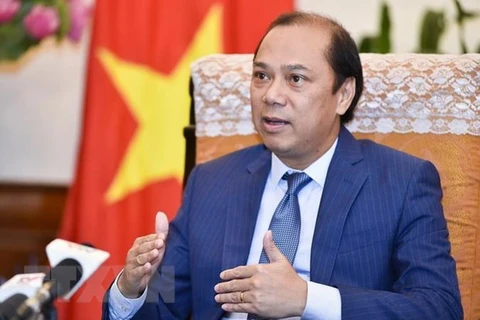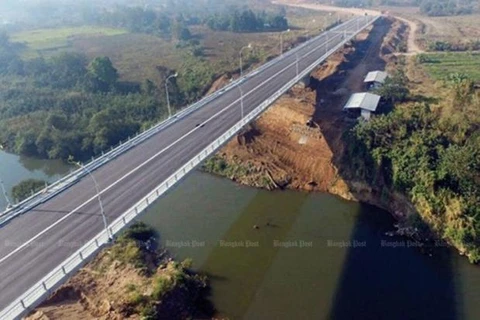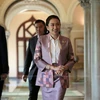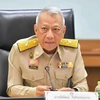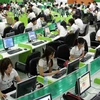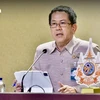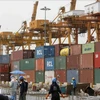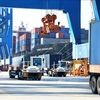Hanoi (VNA) – The Thai government has ordered the Board of Investment (BoI) to actively attract foreign investors who plan to move out of China, especially Japanese ones hit by the US – China trade war.
The Bangkok Post on June 3 quoted Thai Deputy Prime Minister Somkid Jatuspripitak as saying that high-tech industries like IT and electronics are likely to move out of China amid the heightened trade row between China and the US.
He said the BoI has also been instructed to improve investment policies to promote investment in business community, adding that existing perks are not attractive enough to lure large companies.
Last month, Secretary General of the Thai National Economic and Social Development Council (NESDC) Thosaporn Sirisamphand urged the government to come up with special investment packages to encourage foreign firms affected by the trade war to relocate to Thailand.
The investment policies should be attractive enough to entice them to choose Thailand as a base, not solely for factory relocation but also for production capacity expansion, he said.
An NESDC study found that the trade squabbles between the US and China since 2018 have led various factories to consider relocating their production bases to other countries.
According to him, the trade war is likely to change the production base of the world for electronics products from China to Southeast Asia. The relocation would become especially visible in the latter half of this year when the trade war is expected to become heightened.
The latest report by the BoI showed that foreign direct investment (FDI) in Thailand amounted to 104.88 billion baht (3.3 billion USD) in the first four months of this year, up from 36.5 billion baht from the same period last year.
Japan still ranked first in terms of FDI, with 30.7 billion baht for the period, up from 14.6 billion baht in the same period last year.
Switzerland came second, with 11.1 billion baht, up from 5 billion, followed by China at 9.39 billion, up from 3.11 billion, Singapore at 6.2 billion, up from 5.6 billion, and Hong Kong at 3.69 billion.-VNA
The Bangkok Post on June 3 quoted Thai Deputy Prime Minister Somkid Jatuspripitak as saying that high-tech industries like IT and electronics are likely to move out of China amid the heightened trade row between China and the US.
He said the BoI has also been instructed to improve investment policies to promote investment in business community, adding that existing perks are not attractive enough to lure large companies.
Last month, Secretary General of the Thai National Economic and Social Development Council (NESDC) Thosaporn Sirisamphand urged the government to come up with special investment packages to encourage foreign firms affected by the trade war to relocate to Thailand.
The investment policies should be attractive enough to entice them to choose Thailand as a base, not solely for factory relocation but also for production capacity expansion, he said.
An NESDC study found that the trade squabbles between the US and China since 2018 have led various factories to consider relocating their production bases to other countries.
According to him, the trade war is likely to change the production base of the world for electronics products from China to Southeast Asia. The relocation would become especially visible in the latter half of this year when the trade war is expected to become heightened.
The latest report by the BoI showed that foreign direct investment (FDI) in Thailand amounted to 104.88 billion baht (3.3 billion USD) in the first four months of this year, up from 36.5 billion baht from the same period last year.
Japan still ranked first in terms of FDI, with 30.7 billion baht for the period, up from 14.6 billion baht in the same period last year.
Switzerland came second, with 11.1 billion baht, up from 5 billion, followed by China at 9.39 billion, up from 3.11 billion, Singapore at 6.2 billion, up from 5.6 billion, and Hong Kong at 3.69 billion.-VNA
VNA

